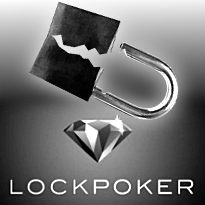Revolution Poker Network Changes Player Segregation Policy

A much-despised player segregation scheme has apparently been discontinued by the Revolution Gaming Network.
But it’s less clear what system has replaced it.
Understanding Fair Play Technology
The scheme in question was branded Fair Play Technology by Revolution, and was introduced with great fanfare across the network – which includes rooms like Lock Poker and Cake Poker – back in February of 2013.
The basic idea of the scheme was to “grade” players at different skill levels (low, average, high). The formula by which players were graded was never publicly released, making it difficult for players to understand the system or to offer critiques of the system.
Partially as a result of that ambiguity, and partially due to the general unpopularity of such systems, traffic at the network plummeted after the introduction of Fair Play.
Revolution decides to walk back on the system
Now, the network is reversing course and removing the grading system. But that’s not the end of the story.
First, there’s some question about whether or not the system has actually been removed. Posters on TwoPlusTwo have noted some indications that Fair Play – or at least some system that resembles it – is still in place.
And observers of multiple skins on the Revolution Network have pointed out that the lobbies of each individual skin are listing dramatically different games from one to another.
There has been no official word on the situation from Revolution or any of the individual skins on the network. Backchannel conversations with reps at Revolution skins confirms that Fair Play has been removed – or at least that players are no longer graded.
But the system by which players are separated from one skin to the next on the network remains something of a mystery.
Other rooms employ skill-based segregation
Revolution wasn’t alone in its attempt to protect less-skilled players from more experienced ones. A variety of rooms have taken measures – some subtle, some blunt – to separate different classes of players.
They are the only US-facing online poker room to do so; for example, Bovada – which is not network based – does not grade players or separate them by skill level.
And Merge (Carbon Poker) separates some tables from the network based on what room they come in from
For example, 888 Poker has a history of reportedly banning players who win too much. That’s certainly their right as a business, but it can’t sit well with said players.
A less controversial approach, but more limited, can be found at the ” beginner’s tables” at bet365 or the “new to the game” tables at Full Tilt Poker. Both restrict access (to varying degrees) to new players, the idea being that they’ll get their feet wet playing at those softer tables and therefore be better equipped to face the challenge of players with far more experience under their belt.
And perhaps the most comprehensive – and possibly most controversial – approach can be found at Party Poker, which introduced lobby-wide segregation of their cash games in early 2013 with little notice or explanation to players.
Party’s traffic has dropped off tremendously since then, but it is difficult to attribute that drop strictly to the segregation policy, as the room has faced a number of other challenges, including outdated software, diminishing promotional value and a failure to innovatively market to new players.










